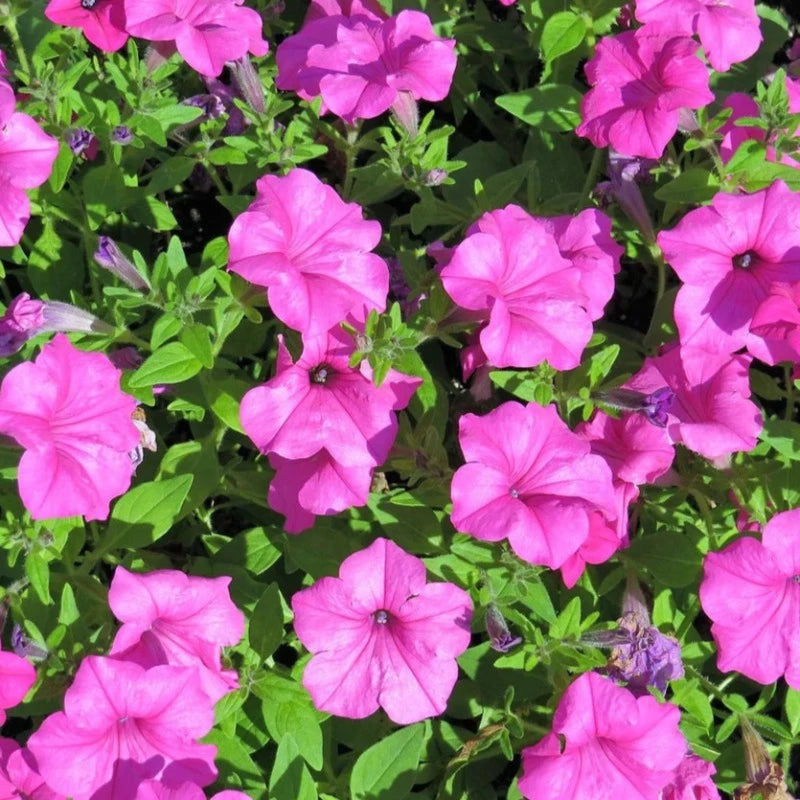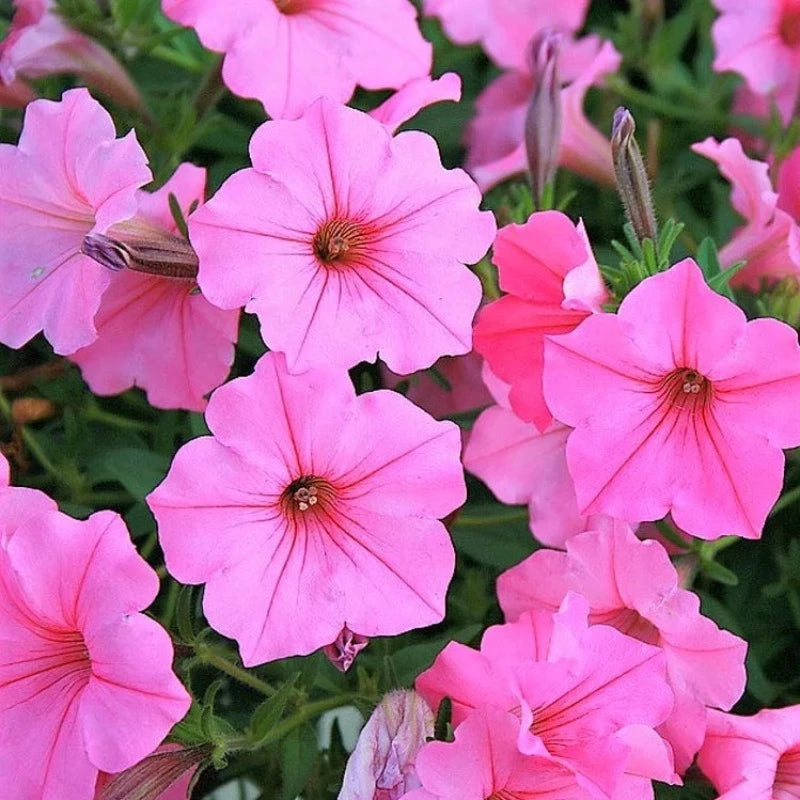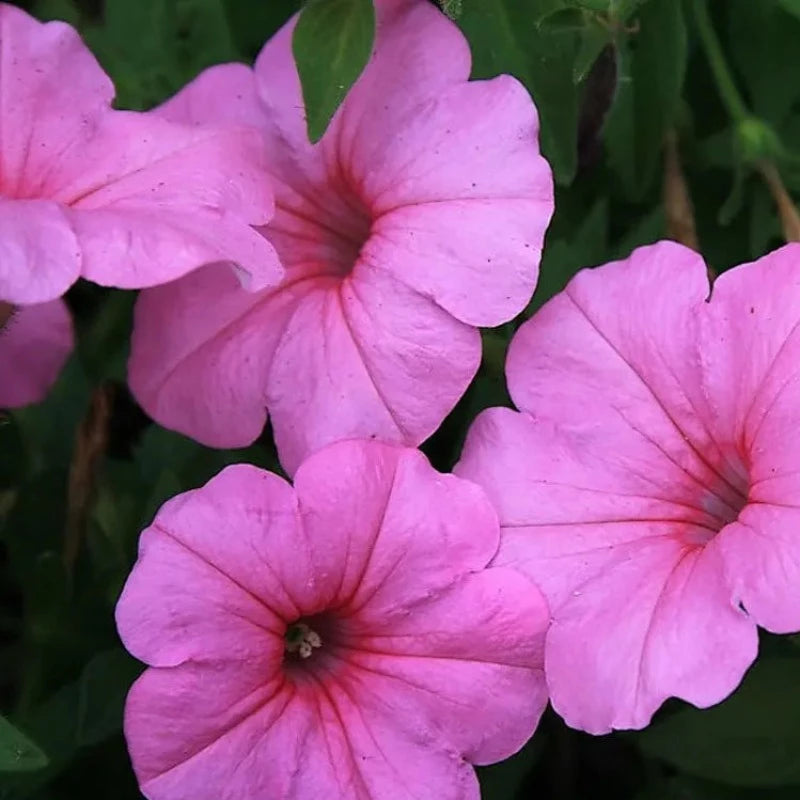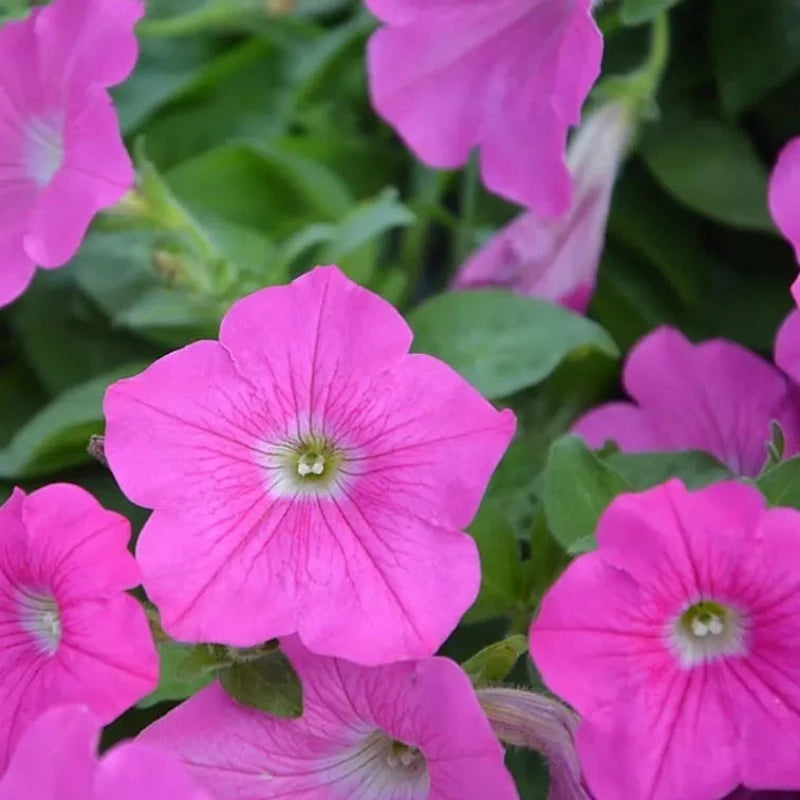- Historical context: Petunias are part of the Solanaceae family, which also includes tomatoes, potatoes, and tobacco. The hybrid varieties, known as Petunia hybrida, were developed to enhance the plant's ornamental qualities.
- Geographical origination: Petunias are native to South America, particularly Argentina and Brazil.
- Relevant cultural significance: Petunias have been popular in gardens worldwide due to their vibrant colors and ease of cultivation. They are often used in hanging baskets, window boxes, and as bedding plants.
- Time period of discovery: The first petunias were discovered in the 18th century, but significant hybridization efforts began in the 19th and 20th centuries.
- Original habitat: Petunias originally grew in the warm, temperate regions of South America.
- Notable historical uses: Historically, petunias have been primarily used for ornamental purposes in gardens and landscapes.
- Ideal temperature range: Petunias thrive in temperatures between 60-75°F (15-24°C).
- Soil type: They prefer well-draining, fertile soil with a pH between 6.0 and 7.0.
- Sunlight requirements: Full sun is ideal for petunias, requiring at least 6 hours of direct sunlight daily.
- Watering needs: Petunias need regular watering, especially during dry periods, but the soil should not be waterlogged.
- Planting season: Plant petunia seeds indoors 10-12 weeks before the last frost date, or directly outdoors after the danger of frost has passed.
- Germination time: Petunia seeds typically germinate in 7-10 days under optimal conditions.
- Growth cycle duration: Petunias are annuals, completing their life cycle in one growing season.
- Common pests and diseases: Common pests include aphids, caterpillars, and spider mites. Diseases can include powdery mildew, botrytis, and root rot.
- Companion planting advice: Petunias pair well with marigolds, geraniums, and other sun-loving annuals.
- Common challenges and solutions: Challenges include overwatering, which can lead to root rot, and insufficient sunlight, which can cause leggy growth. Ensure proper watering and adequate sunlight to mitigate these issues.
- Nutritional values: Petunias are not typically consumed, so they do not have notable nutritional values.
- Health benefits: While not used for health benefits, petunias can improve mental well-being by enhancing garden aesthetics and providing a sense of accomplishment in gardening.
- Culinary uses: Petunias are not commonly used in culinary applications.
- Medicinal uses: There are no significant medicinal uses for petunias.
- Other unique advantages: Petunias are highly valued for their ornamental beauty, wide range of colors, and ease of cultivation. They are excellent for adding vibrant color to gardens, hanging baskets, and window boxes.










